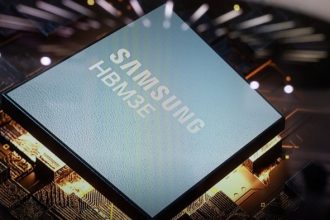- A former Instacart shopper fought the company over deactivation and won a $28,000 payout.
- The shopper used arbitration, which Instacart mandates for contractors who want to challenge it.
- The monthslong process required hours of research, the shopper said.
Jason Via had been an Instacart shopper for 2 ½ years in July 2021 when the company deactivated his account. The reason? A Walmart self-checkout charged him for an extra item while he was ringing up an order, he said.
That simple mix-up touched off a struggle that lasted over a year, left Via broke, and nearly cost him his home, he said. But he fought back by exercising an option that most gig workers may not know they have: He went into arbitration and won a payout from Instacart of just over $28,000, according to a copy of the arbitrator’s decision viewed by Insider.
“I’ve never run into anyone that’s gone through the whole process,” Via told Insider.
The arbitration process can be complicated to navigate, and most gig workers don’t have the resources to hire someone to guide them through it, he added.
“We are living week to week, order to order,” he said.
Many workers say they struggle to earn money on Instacart, especially after the company cut base pay in July.
Instacart confirmed that it deactivated Via and that his case was resolved by arbitration in October. It declined to comment on Via’s arbitration proceedings or the final award, telling Insider that those details were “confidential.”
Initially, Instacart didn’t make it clear why it deactivated Via, he said
In the terms shoppers must accept before they start working, Instacart lays out reasons workers can be deactivated. Some examples are obvious, such as repeatedly delivering orders late.
But Via’s experience demonstrates that Instacart sometimes deactivates its contractors over much less.
In an interview, Via said that the issue that led to his deactivation went back to the Walmart self-checkout kiosk he used two years ago.
Before he arrived, another customer seemed to have scanned an $18 pack of cat food, then walked away with the item without paying, he said. When Via approached the register, the first customer was gone, but the item appeared on his receipt for that transaction, according to a photo of the receipt presented during the arbitration process and seen by Insider.
Instacart notified Via about his deactivation by email the day after the Walmart order, according to a series of messages Insider saw. But there wasn’t much information in the email.
He asked for details in a reply email, which Instacart interpreted as his appeal of the deactivation.
“I hadn’t even appealed because I didn’t even know what it was for,” Via told Insider.
Only then did Instacart acknowledge that Via’s deactivation was related to the Walmart order. But the message, which Insider reviewed, still didn’t explain exactly why Via had been deactivated. The email said that the Walmart purchase was a “questionable transaction” and that he would no longer be able to claim orders through Instacart.
“We may not respond to further emails about this issue,” the email, sent from an account for Aureen Chowdhury but signed “Annie T.,” said. “Thank you for your service.”
In arbitration, Instacart unsuccessfully tried to argue that it could disregard the agreement that it asks shoppers to sign
Via filed a request for arbitration in January 2022.
The process differs from litigation in court in several ways: A court case tends to be public, with motions, rulings, and other documents visible to the parties and outside observers. Arbitration, by contrast, tends to be private and not visible to people other than the parties in the dispute.
Disputes between Instacart and its contractors are settled by binding arbitration, meaning that neither side can appeal the decision, according to Instacart’s terms. Shoppers who want to go through arbitration also have to work with an arbitration firm that Instacart picks, according to the terms.
Once a shopper requests arbitration proceedings, they must wait 30 days “to resolve the dispute before arbitration commences,” Instacart told Insider.
Documents from the arbitration process showed that Instacart argued that it had the option to remove Via from its app — regardless of whether he had violated Instacart’s independent-contractor agreement.
One of Instacart’s arguments was that the Walmart purchase had violated Instacart’s contract with Via, according to a motion filed by Instacart in July 2022. Instacart’s agreement cites fraudulent conduct as a reason for terminating shoppers.
But the arbitrator said Via wasn’t aware of the extra item until the following day when Instacart deactivated his account. Thus, the arbitrator wrote Via did not “engage in or encourage fraudulent conduct” that might violate his agreement with Instacart.
Almost a year after Via’s arbitration case was resolved, Instacart told Insider that it deactivated Via because the company “could find no evidence to suggest that the transaction was not fraudulent.”
At the time of the arbitration hearing, representatives for Instacart also argued that the company could “terminate the independent contractor agreement for any reason or no reason,” according to a prehearing brief seen by Insider.
The arbitrator disagreed with Instacart’s assessment.
“It bears note that there is no provision to that effect in the ICA,” he said in the final award document, referring to the independent-contractor agreement.
Instacart’s agreement for contractors “purports to require both parties to perform certain obligations, and grants them certain rights,” the arbitrator said, adding: “But Respondent now argues that these rights and obligations are illusory, because the instrument is voidable at any time, by operation of a mutual right arbitrarily to terminate.”
Via spent months in arbitration before winning an award in his favor
In October, 15 months after the deactivation email, the arbitrator issued a cash award to Via. The $28,000 figure was an estimate of how much income he had lost since he had been deactivated on Instacart the previous summer.
That loss of income put Via’s house in Los Angeles on the road to foreclosure. Insider reviewed a foreclosure notice from Via’s bank. He and his wife were able to avoid losing the property by renting it out to college students and moving to Washington to live with his in-laws, he said.
That’s where they live today, he told Insider.
“It’s still a matter of catching things up,” he said. “The mortgage fell behind — everything fell behind.”
Via also spent hours doing legal research and crafting responses to arguments that Instacart’s representatives used in arbitration. He said he never went to law school but that knowledge from a prior job evaluating contracts for a health-insurance company came in handy as he parsed Instacart’s contract for shoppers.
“I can read it and figure out what makes sense and what I can argue and what doesn’t make sense,” he told Insider.
While the arbitration process is time-consuming, he spoke with Insider to let other shoppers know it’s an option.
“At least when you get fired from a job, you can get unemployment, and you’ve got something coming in,” Via said. “You get deactivated from Instacart or one of these gig companies, and you’re just cut off completely.
“There’s no security or anything because you’re not ’employed.’ You’re just an independent contractor.”
Do you work for Instacart, DoorDash, Uber Eats, or another delivery service and have a story to share? Reach out to this reporter at [email protected].
Read the full article here





